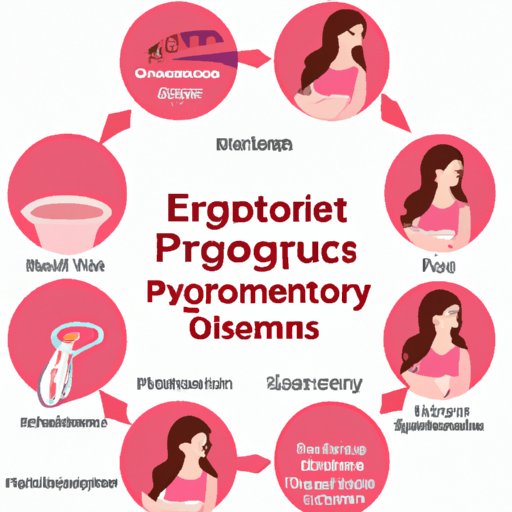
I. Introduction
Ectopic pregnancy is a condition that occurs when a fertilized egg implants outside the uterus instead of inside it. Unlike a typical pregnancy, an ectopic pregnancy can have severe implications for a woman’s health and can even be life-threatening if left untreated. It is important to understand the symptoms and risks associated with ectopic pregnancy to ensure early detection and proper treatment.
II. Importance of Early Detection in Ectopic Pregnancy
Early detection is crucial in treating ectopic pregnancies. Symptoms can vary, but some common indicators include abnormal vaginal bleeding, pelvic pain, or pain in the rectum or shoulder. A pregnancy test can also provide some insight into a possible ectopic pregnancy, as the hormone hCG produced during pregnancy can be detected in the urine.
Leaving an ectopic pregnancy undetected can have severe complications, including internal bleeding and organ damage. In some cases, it may even be necessary to remove the fallopian tube where the egg implanted.
III. Ectopic Pregnancies: Understanding the Link Between Menstruation and the Possibility of Implantation Outside the Uterus
The fallopian tubes play a crucial role in pregnancy as they transport the fertilized egg from the ovary to the uterus. Sometimes, however, the fertilized egg may implant outside the uterus and develop in the fallopian tube, ovary, cervix, or even the abdominal cavity. This can occur due to damage or scarring in the fallopian tube or other reproductive organs. This can affect menstrual cycles, as the fertilized egg can trigger hormonal changes that can cause bleeding similar to menstruation.
IV. The Relationship Between Hormones and Ectopic Pregnancy: Can a “Normal” Period Have Traces of an Ectopic Pregnancy?
Hormonal changes during pregnancy and menstruation can be affected by an ectopic pregnancy. Pregnancy hormones such as hCG and progesterone can be detected in the blood and urine during a typical pregnancy. However, in an ectopic pregnancy, these hormones may be present in lower levels than in a typical pregnancy. This can sometimes result in a ‘normal’ period that may actually contain traces of an ectopic pregnancy.
In some cases, a patient may experience light bleeding or spotting during an ectopic pregnancy, which may be mistaken for a period. However, it is important to note that a period during an ectopic pregnancy does not necessarily indicate that everything is normal.
V. Common Misconceptions About Ectopic Pregnancy: What You Need to Know About the Absence or Presence of Menstruation for an Accurate Diagnosis
Common misconceptions about ectopic pregnancy include the belief that a missed period is the definitive sign of pregnancy or that the absence of menstruation is always a sign of an ectopic pregnancy. However, these signs can be present in both typical pregnancies and ectopic pregnancies or can be absent altogether.
It is also possible to have a positive pregnancy test but not experience typical pregnancy symptoms such as morning sickness or breast tenderness in the case of an ectopic pregnancy.
VI. The Impacts of Ectopic Pregnancies on Fertility: How Knowing More About Menstrual Patterns During Ectopic Pregnancy Can Aid in Prompt Treatment and Care
If left untreated, an ectopic pregnancy can have long-term effects on fertility. In some cases, the affected fallopian tube may have to be removed, making it harder to conceive naturally in the future.
Knowing more about menstrual patterns during ectopic pregnancy, such as the presence of abnormal bleeding or symptoms of pain or discomfort, can aid in prompt treatment and care, minimizing the impact on fertility.
VII. Conclusion
Early detection and treatment are critical in managing ectopic pregnancies. While the presence or absence of menstruation can provide some indication of a possible ectopic pregnancy, it is not always a definitive sign. It is crucial to seek medical attention if you experience any unusual symptoms or suspect an ectopic pregnancy.
Remember, ectopic pregnancy can have severe implications on a woman’s health and fertility, and prompt treatment can make all the difference.




